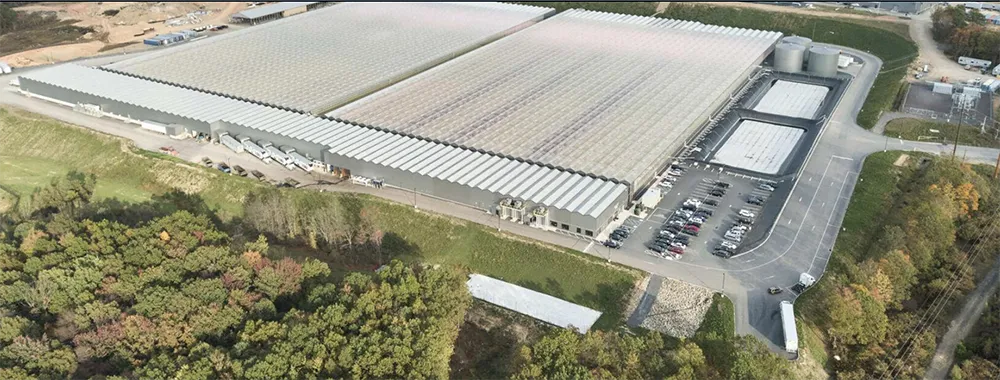November 19, 2024
Using hydroponic science to grow greens in coal country is not only possible, it's also profitable

Little Leaf Farms uses controlled environment agriculture. (Photo via Lancaster Farming)
Hydroponics has been used to grow plants since 600 B.C. when Babylonians first used it to create lush Mesopotamian gardens. Present-day farmers grow hydroponic crops using the same science used 2600 years ago, but they apply it in vastly different ways. In Pennsylvania, the practice has revitalized parts of coal country.
"The borough of McAdoo lies in the heart of Pennsylvania’s Schuylkill County coal region, and one business finds the landscape perfect for growing green," reports Tom Venesky of Lancaster Farming. "Little Leaf Farms raises leafy greens — primarily lettuce varieties — for its packaged salad brand utilizing controlled environment agriculture, an intensive form of hydroponics."
The plants' growth model is much more organized and contained than outdoor greens farming, which is exposed to the elements. "A conveyor belt that carries seeds planted in gutter-style trays through the building as the plants grow," Venesky explains. "Rainwater is harvested from the roof for the plants, and at the end of the growth cycle the conveyor carries the plants to the harvesting and packaging areas."
With more predictable and efficient plant production, Little Leaf Farms has become profitable and plans to expand. "Each 10-acre greenhouse replaces 300 acres in a traditional farm setting, according to Paul Sellew, the company’s founder and CEO," Venesky writes. "The fourth greenhouse will open next fall and will encompass 10 acres."
Little Leaf Farms isn't staying little. In fact, its two greenhouse campuses "make the brand available to over 7,000 grocery stores," Venesky reports. The company "has the highest household penetration of all controlled environment agriculture leafy green brands. . . . Consumer demand for leafy greens is also healthy for the economy, according to Sellew, who points out the Pennsylvania campus now employs 300 staff since it opened in 2022."